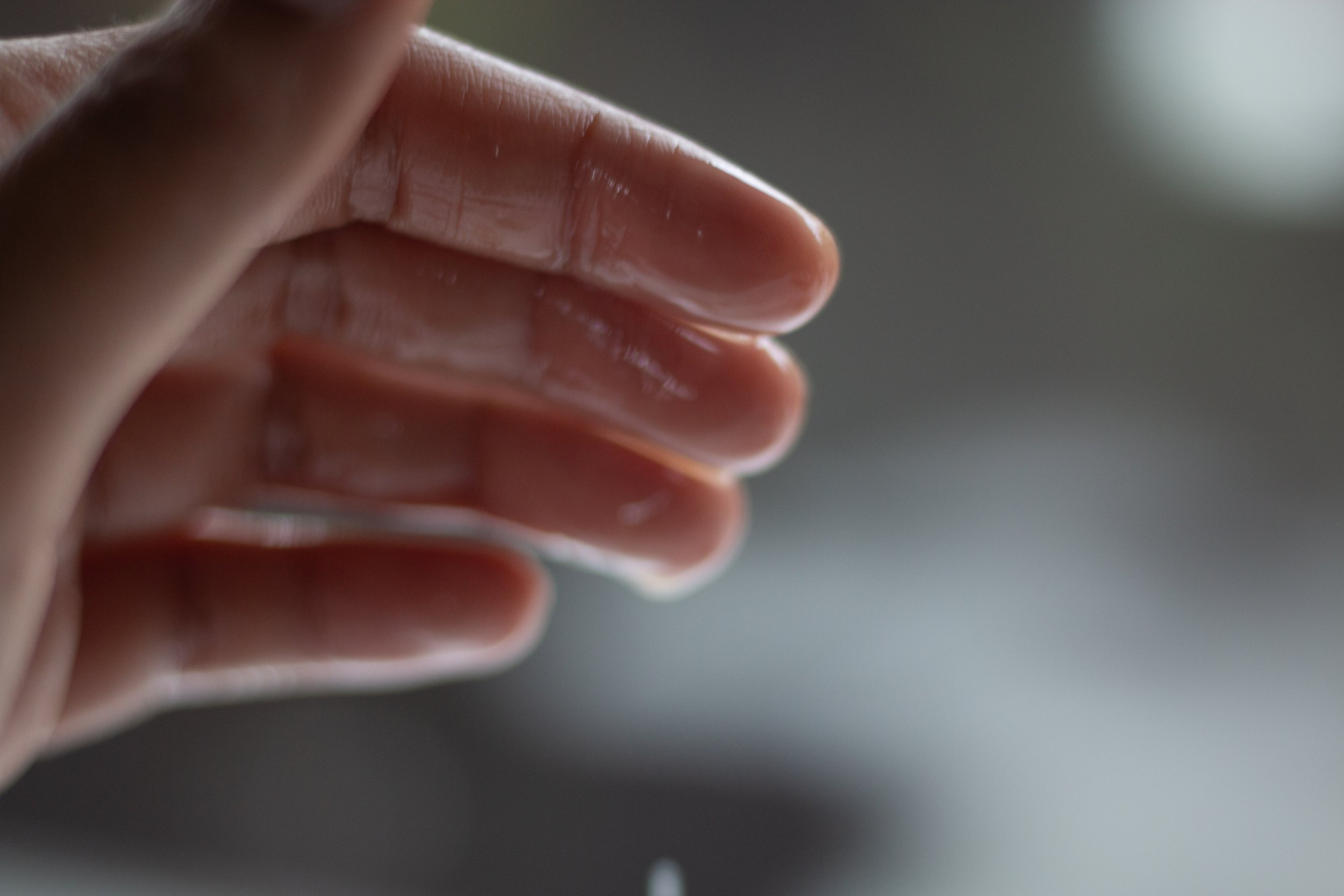Tel Malish
It became routine for my family to gather in the living room every Friday night, with blankets, snacks and bowls of oil in tow.
Image Credit: Nishta Gupta
“Apane baalon mein tel lagaen, beta?”
Shall I put oil in your hair, child?
Mumma calls me over, and I pause. She used to oil my hair every week when I was a kid; it became routine for my family to gather in the living room every Friday night, with blankets, snacks and bowls of oil in tow. Over time, the routine began to fade, and eventually halted to a stop. Maybe it was the busyness of life. Or our move to a new house, still unmarked by patterns of comfortable familiarity. Perhaps it was the memory of classmates shifting away from me, scrunching their noses and complaining of greasy hair.
2 tablespoons of coconut oil
1 tablespoon of olive oil
1 tablespoon of almond oil
½ teaspoon of castor oil
Mix into a small ceramic bowl, the keeper of chipped conversations and cut fruit. See the pale hues swirl together, not quite mixing, but resting next to one another. Warm the bowl for the duration of your daydreams.
I cautiously seat myself by Mumma’s feet, and she impatiently tells me to move closer between her legs so she can do tel malish properly (an oil massage). I’m unaccustomed to it at first; she combs my hair with her fingers and the strands snag with tangles, and the oil is hot on my scalp. But the tangles soon slide free, the oil softens my hair, and we fall into a pleasant rhythm. I smell the rich coconut perfumes emanating from the oil, mixed with hints of olive and almond, and I remember the times that I would sit between Mumma’s legs as a child. At this moment, the temporal gap between my 21 year old and 10 year old self is bridged.
Our eyes don’t meet, but her fingertips connect with the pressure points on my scalp and my neck, leaving invisible thumbprints of love. We make small conversation as she works. Our words are a blurred patchwork, stitching together my kindergarten-level Hindi words with streams of English language consciousness. Vowels that my mouth can’t form, splintered syntax, and almost-there accents infuse with the aromatic oils.
Maybe it’s our first conversation of the day — unless you count “Have you eaten anything?” and “How are your studies going?”. But her practised hands rub, knead, detangle, and tell far more important stories. I can almost see my Nani (my maternal grandmother) oiling Mumma’s hair, and my Nani’s Nani doing the same. Generations of Indian women sitting by our mothers’ knees, whispering secrets and prayers as the oil loosens our tongues and smooths over the tensions of the day.
They tightly braid my hair, and I am reluctant to wash it in the morning.



























































